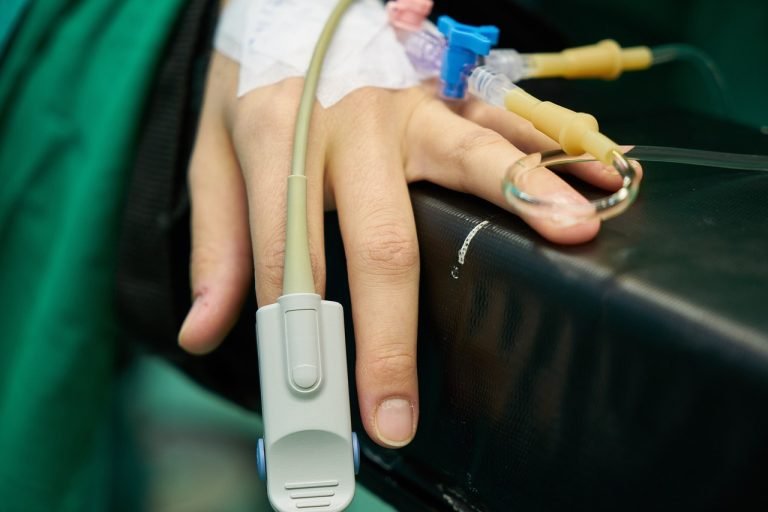Wait until you hear this one.
So, I’m sleeping peacefully two nights into my Covid recovery when, at 2:00 AM, I wake up with hot, raging pain in my feet. It’s in my heels, in the soles of my feet, in my arches. It slowly moves up into my ankles—both of them. It’s a pain unlike anything I’ve ever experienced. I am crying in bed, and the pain is moving into my knees where it burns and aches and causes all kinds of general mayhem.
My crying wakes Sissy who barks and wakes Julie who insists on taking me to the ER. I’m not sure how to get to the car because I can’t walk through the pain, but somehow, I stumble and crawl and cry my way to the passenger’s seat. We sit in the ER for nearly four hours, and the doctor prescribes Gabapentin for nerve pain.

“I think it’s most likely a bad reaction to the Paxlovid you took for Covid,” she says. “Paxlovid doesn’t play well with the antidepressant you’re on. I think it will all pass in about two weeks when the Paxlovid is fully out of your system.”
I thought about how to deal with this kind of pain for two weeks.
“What do I do until then?” I asked.
“The Gabapentin should take care of the pain,” she said.
And off we drove into the sunrise.
The next day, the opioids they gave me in the ER kept the worst of it at bay.
But in the middle of the night, I woke again at 2:00 AM, feet and knees screaming with the same hot, searing pain. I writhed around in bed, moving my legs, changing position, trying to find a place of comfort. But there was no relief to be found.
So off we went again. This time to a bigger hospital; one that could admit me for further tests if they decided to.
The second we got there, the ER doctor was already dismissing my pain. “I’m going to do an ultrasound to see if you have any blood clots in your legs. As long as you don’t, you can go home.”
He never asked about my pain level; never asked about my symptoms; never asked about my history.
“But what do I do when I go home, the medication wears off, and I’m back in this position again?” I asked.
“You need to follow up with a neurologist,” he said.
“I understand that,” I said, “but getting in to see a neurologist could take months. What do I do in the interim?”
“I’ll prescribe two days of Oxycontin for you,” he said. “I won’t give you anything stronger. I save the strongest meds for my cancer patients only.”
“Okay,” I said, “but you haven’t even asked about my pain level. I can’t even walk right now. How am I supposed to go about my day-to-day life?”
“Not being able to walk and choosing not to walk because of pain are two very different things,” he said.
Damn. I’ve never felt so dismissed.
“Doctor,” I said, “I have a pretty high pain tolerance level. I’ve had four c-sections, kidney stones, spinal surgery, stitches in my face, numerous sports injuries. This is a pain that surpasses all of those. And it doesn’t stop.”
“You need to follow up with a neurologist,” he said.
“But what about admitting me here for a neuro consult?” I asked. “Doesn’t it make sense to try and figure out what’s happening instead of just sending me home to spend the weekend on opioids?”
“We’re not going to admit you here,” he said. “You don’t have anything life threatening. You need to follow up with a neurologist.”
While I waited for paperwork and blood work (that I insisted on) and more excuses, I did a lot of Googling. Of course, I convinced myself that I had Guillain-Barre syndrome and that I would probably be completely paralyzed within the week.
It didn’t matter, though. His decision was made, and I was going home with opioids and without answers. I was crying. Julie was crying. We had spent eight hours waiting and begging for some pain relief and getting frustrated over and over again. I couldn’t stop thinking about the next night I was going to wake up with my feet and knees on fire… and the next… and the next… while I waited for my neurology follow-up appointment to happen.
It’s Sunday now, and I have four pain pills left. I can’t even begin the process of finding a neurologist until tomorrow when the offices open again. By then, I’ll be out of pain pills.
I can’t wait to receive my multi-thousand dollar ER bills for a Gabapentin prescription, 10 Oxycontin, and a recommendation (not even a referral) to see a neurologist.
I’ll place a bet that I’m still waiting on that neurology appointment when the bill arrives.
Come on, American Healthcare. Do better.





2 Responses
I’m so so sorry that you’re going through this. It sounds unbearable. And I’m also sorry that the ER doctor was so dismissive. Downright rude, it sounds like. What a jerk. I can’t fathom why he wouldn’t ask about your pain level or history. Incredible that he prescribed opioids without checking your history or for interactions. Just passed the buck, no dealing with the patient or her immediate needs. Ugh, the US healthcare system is appalling. Broken. Sending all best wishes for a speedy recovery and significantly less pain.
Thank you so much for your words of support and your kind wishes, Elisia. It was a horrible experience for sure, but one that happens to too many women, I think. Our pain is so often dismissed and diminished. I hear similar stories way too often. 🙁